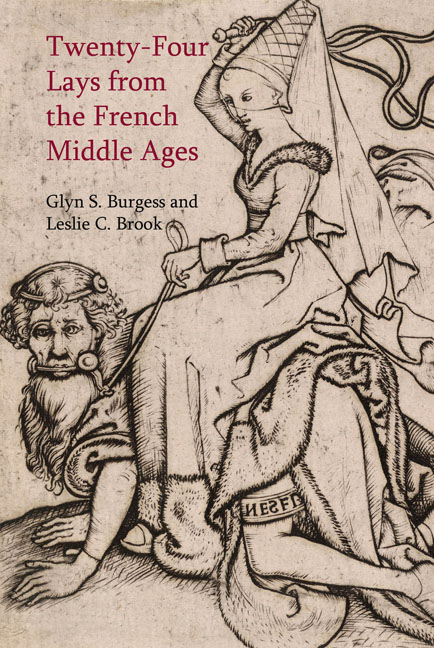15 - Oiselet
from Fun and Games
Summary
Introduction
Oiselet (Little Bird) is preserved in five manuscripts: (i) S; (ii) A: Paris, BNF, fr. 837; (iii) D: BNF, fr. 24432; (iv) C: BNF, fr. 25545; (v) E, BNF, fr. 1593. These manuscripts are usually divided into two groups: SAD and CE. Our translation is based on the version in S.
A rich peasant has purchased owns a beautiful manor and a magic garden from the impoverished son of a knight. The garden is the focus of interest throughout the tale and it is described at some length. It is visited twice daily by a little bird that perches in a pine tree that shades a fountain. The bird sings a magic song that has the power to make any listener feel happy and to inspire thoughts of love. The garden is destined to last only as long as the bird comes to sing. The peasant sits beneath the tree each day to listen to the song, but one morning the bird sings of the importance of loving God, as God loves lovers, and of being generous and courtly. This message is meant for an aristocratic listener, but when the bird espies the peasant it changes its song abruptly, showing contempt for him and calling on the garden to wither and the manor to collapse. It accuses him of being interested only in money. The peasant then traps the bird, intending either to sell it or to get it to sing exclusively for him. The bird refuses, and when the peasant threatens to eat it, it manages to persuade him to let it go free, in return for learning three secret truths that no one else has ever known. The truths are revealed one by one, and after each one the peasant has an angry outburst, claiming that what the bird has told him is common knowledge. The bird then tells him that he should have heeded the final truth and not let it go free, as its body contains a precious stone weighing three ounces that has the power to grant anyone's wishes. The peasant is beside himself with rage, whereupon the bird tells him that he should have realised that his statement about the weight was a lie, as the bird itself did not weigh more than half an ounce.
- Type
- Chapter
- Information
- Twenty-Four Lays from the French Middle Ages , pp. 159 - 166Publisher: Liverpool University PressPrint publication year: 2016



